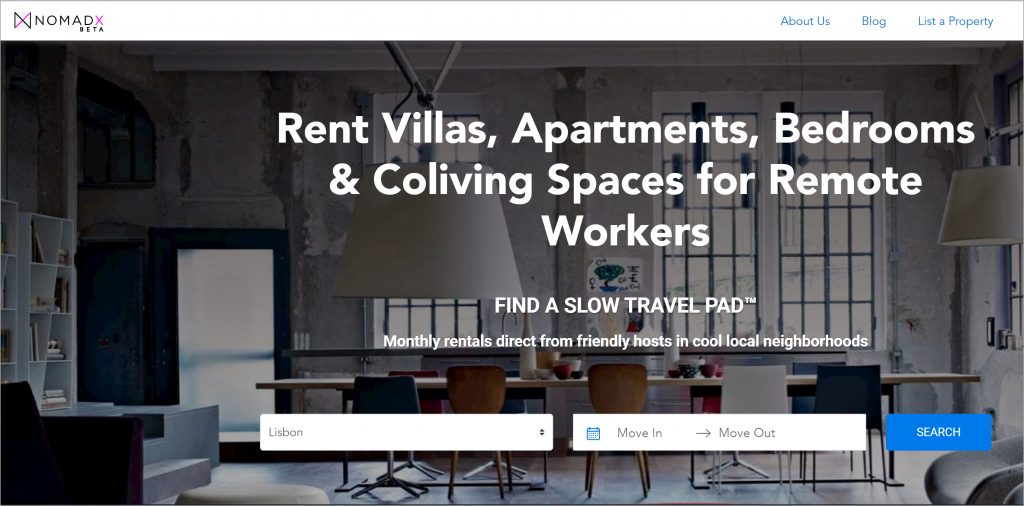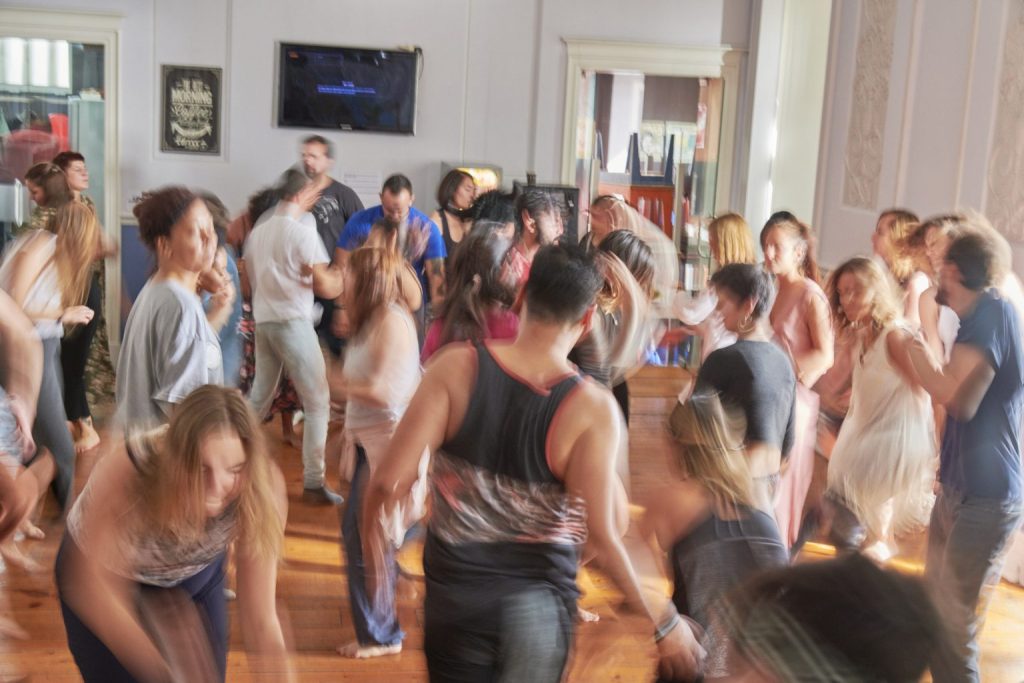Border closures and flight restrictions put in place to slow the spread of the coronavirus have dampened the mood of millions of travel enthusiasts around the world.
But the abrupt change from globe-trotting to quarantine has affected one group in particular whose lifestyle revolves around being on the move: digital nomads.
The short-term impact of the outbreak on digital nomadism is undeniable, but the sudden transition to remote work is expected to lead to a dramatic increase in the number of digital nomads worldwide in the long run.
"Now that everyone has gone remote, we are seeing a whole lifestyle around digital nomadism and around remote work accelerating," David Nicol Williams, an industry expert, told Via News in an interview.
Dave is the co-founder, chairman and CEO of NomadX, a month-to-month rental platform with a mission to revolutionize the way location-independent professionals—or digital nomads—live, work, and travel.

Future Prospects
Asked about the future of digital nomadism, the serial digital entrepreneur said the industry is going through some changes driven by various factors.
A lot of the nomads traditionally have gone to the bigger cities but now they are expected to spread out to more remote locations where they do not have as many of the restrictions or fear of infections, Dave explained.
"That's something we've always promoted since we started the company," he added, referring to the fact that NomadX encourages nomads to explore less-trodden areas.
Affordability, Remote Work
Dave believes that affordability is going to matter more to digital nomads going forward, which will lead to them moving more slowly.
"So instead of jumping around as much to different locations, we think once they come to a place, they are going to tend to stay in that place for a while."
Stays are extending longer now and are averaging close to six months at a time, added the CEO of NomadX.
Dave, a pioneer in the digital marketing, advertising, and ad tech industries, says the other big thing is obviously the shift to remote work.
"There are gonna be more digital nomads than ever before," he added while painting a bright future for the industry despite the "big disruption" caused by the coronavirus in the short term.
"We have yet to see what is gonna happen…but I think from 2021 to 2022, we'll definitely just see the industry accelerating. More and more people are gonna be adapting to this lifestyle much faster than we ever imagined."
Early Adapters
Dave says digital nomads are very likely to get through this phase smoothly because they have been "early adapters" and many of them have years of experience under their belts when it comes to working remotely.
"The nomads are very comfortable being uncomfortable. They're very comfortable using remote technologies. A lot of them have businesses that are fairly resilient to this, although some of them have been hit hard because they are freelancers and contractors."
The negative impact on freelance and entrepreneurial businesses is the biggest concern at the moment "but I think once this pandemic is over, those are all gonna come back on track," the chairman of NomadX added.
Dave says he hopes the coronavirus outbreak would encourage more and more people to become nomads and extend their remote work from their home or a coworking space to the road.
Digital nomads are very likely to get through this phase smoothly because they have been "early adapters".
David Nicol Williams, chairman, co-founder, and CEO at NomadX
New Opportunities
While short-term accommodation providers such as Airbnb are struggling, Dave said their business has seen some positive developments as they are in more of a "mid-term" market.
"We are getting a lot more listings coming on board, including from the Airbnbs, as people shift from short-term to more mid-term rentals. We have actually doubled our inventory from all of last year in the last couple of months."
According to him, NomadX—which is headquartered in the Portuguese capital and plans to expand worldwide—currently has about 2,000 listings across Portugal, including in Lisbon, Porto, Ericeira, Cascais, Peniche, Lagos, Aveiro, Albufeira, and Madeira.
"We are also seeing affordability has become a big piece of it as well where the inventory is getting more affordable than it was a couple of months ago. So that's been a positive development."

The team at NomadX is waiting for things to open up again and see what is going to happen next.
"We think most of our business are more oriented toward local travel as we were imagining as we go forward throughout the summer," Dave said.
Changes, New Initiatives
On how things have changed at NomadX since the coronavirus crisis began, Dave said they are trying to adjust to this new reality.
"We had some plans to do some geographic expansion, but we actually pulled back on that a little bit. We just didn't feel like the timing was right to be going out and trying to attract new hosts and new markets. We put that on hold temporarily until the travel bans are lifted and borders are opened."
The co-founder of NomadX added that they used to do a lot of offline events but are now focusing on online events.

One of the events organized recently by the digital nomad housing platform was the 2nd global monthly edition of the Virtual eXstatic Dance—a 24-hour party attended by around 1,200 people from around the world.
"So we've gone from local to global pretty quickly," Dave said, expressing optimism that there is going to be a lot of good coming out of the current situation.

